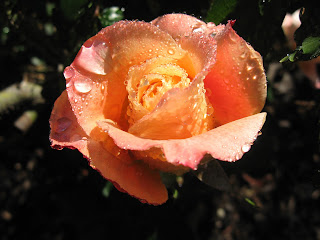A Name with Memories (Bichel)
He was
painting the old Queenslander next door, a top tradesman, always in demand. At
lunch time and after he had called it a day he was always ready for a chat. His
name? Kev Bichel.
Talking to
him would always remind me of a great holiday I once had. What would cause
this? No, it was not his humorous anecdotes that brought back my memories; nor
his exaggerated stories about other identities about town. It was not the high
standard of his work either, although he was a very good painter. No, it was
simply his name - Bichel.
It took me
back to the Bichlalm, a mountain hotel perched high above the Austrian ski
resort of Kitzbühl. Kitzbühl today is one of the classier resorts in Austria
with high-priced hotels, high-end shops and a clientele with the wherewithal to
patronise these places. It is fair to say that its reputation is built, not on
its social life, but the world class skiing possibilities available here.
I knew nothing
of this when I when I went there with a skiing holiday group. Before this
holiday I had never had a snow ski on my foot. The only actual snow I had ever
touched was a dirty remnant on a summer trip to Mt Kosciusko in the Australian
alps. I had booked this particular holiday from a newspaper advertisement for
it had promised snow and skiing instructors who would soon get me up and
running (or should I say skiing?). And I knew it was away from the temptations
of the resort life for it was situated outside the village, accessible only by
ski-lift.
High in the snow above the Bichlalm near Kitzbühl in Austria.. Taking time to rest on a ski tour.
Next day, fitted
out with the necessary boots, skis and stocks, it was on to the beginners slope
with the instructors. Here my first memory. It was of Gretel with whom I had
travelled from Frankfurt on the bus. She had been allocated the seat next to me
and we hit that beginners slope together for she also had never learnt to ski.
All decked out, quite nicely too as I remember, she slowly snow-ploughed to the
bottom of the gentle slope and then tipped over. Legs and skis were entangled,
she sprained her ankle and had to be carried back to the first aid centre at
the hotel. What a disappointment! That was the end of her skiing, after a slow
30 metres. However she would not let that be the end of her holiday.
Second
memory. How one can sweat when the ambient temperature is minus five degrees Celsius!
That's what exercise can do to one. I was determined to get off that beginners
slope as quickly as possible. There was no ski lift there to get one back to
the top again. So it was down the gentle hill practising my balance, my turns,
and goodness knows what else (yes, my stopping!) then it was sidestepping my
way back up the slope to do it all again. It was hard work (that's what caused
the sweating!) but it proved worth it in the end. I did learn the basics of how
to ski.
A skiing learners class being thrown in at the deep end - or should I say being taken to the high end! " Now folks, get to the bottom way down there without falling over and we can move on to the next lesson".
Then followed the memories of ski-hiking along the
tops of the mountains above Kitzbühl and the six kilometre downhill run unto
the village itself. I remember how cheap whiskey was at the hotel bar but I
can't remember how many I actually bought. Finally on the last night at the
hotel, at a sort of wrap-up party for our holiday group, I received a
certificate for the best Australian skier at the hotel. That's Australian;
not to be confused with Austrian! Mind you, I was the only Australian there
Overlooking Kitzbühl in Austria.



















